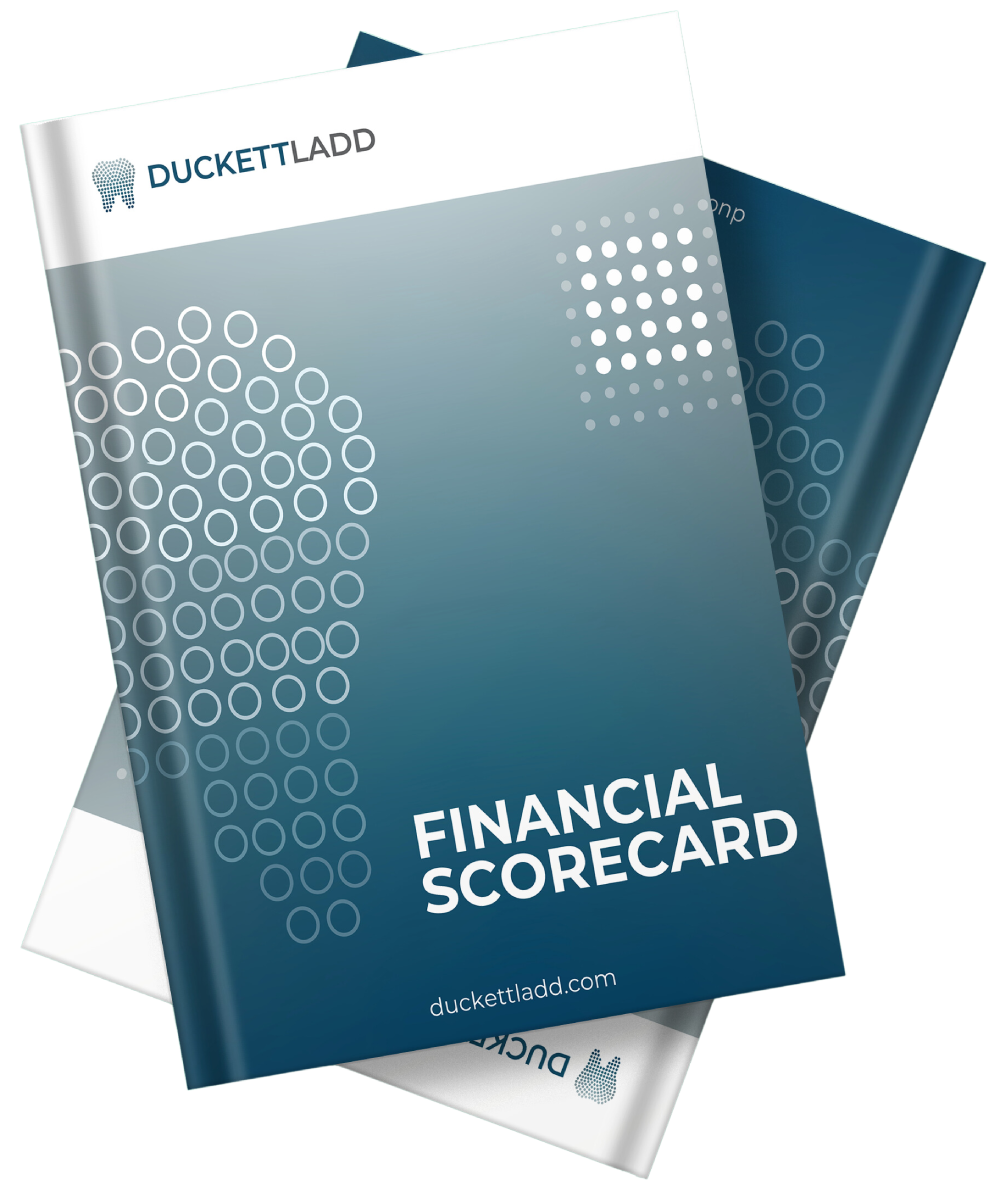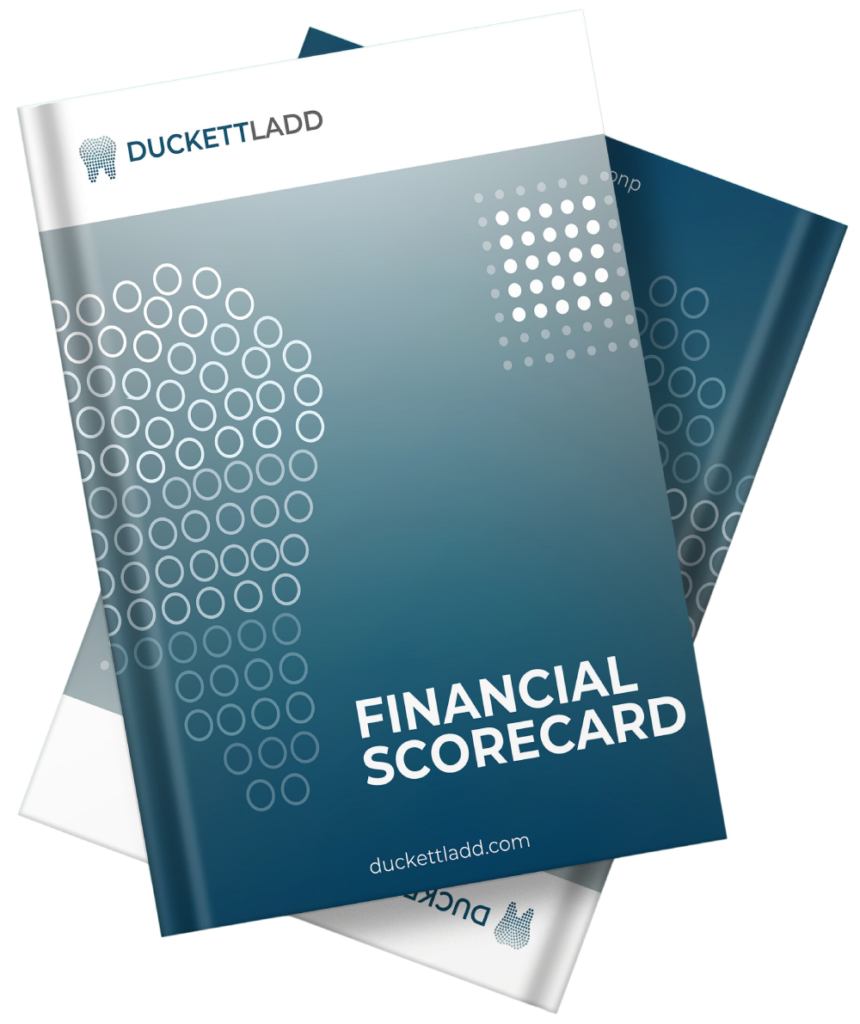Financial record keeping isn’t a simple chore that you can rush through during tax season. Rather, the ongoing systematic tracking of your dental practice’s income, expenses, and transactions provides a foundation for all of your financial processes.
Bookkeeping isn’t every business owner’s favorite activity, but savvy dentists know the value of well-organized financial records. Maintaining detailed books helps ensure tax compliance, aids in decision-making, and improves administrative efficiency.
As a team of CPAs and advisors working exclusively in the dental industry, your friends at Duckett Ladd know a thing or two about record-keeping challenges for dentists. In the sections below, we’ll step through an introduction to financial record keeping, including common mistakes, strategies for improvement, and legal and ethical considerations.
Common Mistakes and Challenges in Dental Financial Record Keeping
Managing your own financial record-keeping can be a cost-saver, but only if sufficient attention and expertise are applied. Here are a few of the pitfalls that dentists commonly face with their financial record-keeping:
- Misclassification of expenses, resulting in inaccurate financial records
- Inadequate tracking of revenue sources, resulting in tax filing complications
- Lack of regular review and reconciliation to ensure accuracy and compliance
These issues result in tax compliance issues, cash flow problems, and hindered financial decision-making.
Improving Financial Record Keeping: Strategies to Implement
Use Appropriate Software
Every dentist knows the importance of using the right tools for the job. For financial record-keeping, the appropriate tool is a financial software system designed for medical practices or specifically for dentists. To streamline all of your record-keeping processes, you can integrate your accounting program with your practice management software.
Regular Review and Reconciliation
Accounts and records should be reviewed on a regular basis. Depending on the bookkeeping system, these reviews may be monthly, weekly, or even daily. A recommended system is to perform brief, minimal reviews of transactions on a daily or weekly basis, with more thorough reviews occurring at longer intervals.
Financial record reviews should include reconciliation. This involves checking your records against their supporting documentation to ensure that all data is accurate and that there are no inconsistencies between different records. You can use accounting software to partially automate this process.
Proper Staff Training and Delegation
When delegating tasks such as bookkeeping and accounts management, recognize the limitations of your administrative staff. Financial record-keeping is complex and errors can be costly, so it’s essential that these tasks are only performed by capable individuals.
If your in-house staff is charged with financial record-keeping tasks, be sure to provide sufficient training and oversight. Your accountant or financial advisor may have recommendations and resources for making sure that these tasks are assigned and carried out appropriately.
Setting Up Defined Expense Categories
As you establish a record-keeping system, an important initial step is to set up defined expense categories. The major expense groupings are:
- Fixed expenses that remain the same from month to month, such as rent
- Variable expenses that occur regularly but change from month to month, such as utility bills
- Periodic expenses that occur from time to time or on a less-than-monthly basis, such as building repairs or annual insurance payments
More granular categorization can include categories like continuing education, insurance, utilities, and charitable contributions. Keeping your expenses properly categorized in this manner is critical for maintaining organized books and ensuring that you’re set up to take advantage of deductions during tax filing.
Working with a Specialized CPA
To ensure efficient record keeping, it’s always a good time to form an ongoing relationship with a CPA. Services from financial professionals are typically highly-customizable, providing whatever level of tax planning, bookkeeping, and financial advising you require.
To receive tailored, expert services, work with financial professionals who have experience assisting medical practices. Or, better yet, work with a team like Duckett Ladd that’s entirely dedicated to the dental industry.
Legal and Ethical Considerations Associated with Record Keeping
As you work to improve financial tracking at your dental practice, remain ever-mindful that record keeping involves serious legal and ethical considerations.
In recent years, major healthcare data breaches have become a growing concern, and HIPAA violations result in millions of dollars in fines every year. To ensure compliance with HIPAA and other privacy regulations, keep tight limits on access to files that contain patient data and maintain strong data security protocols.
Furthermore, note that most long-running dental practices are audited at least once by the IRS. Failure to keep up with financial record-keeping increases your likelihood of an audit and makes it more difficult to get through an audit if one occurs.
Get Better Financial Record Keeping for Your Dental Practice
If you’re eager to improve record-keeping and financial outcomes at your dental practice, the CPAs and advisors at Duckett Ladd can help. Contact our team today to learn more.
Disclaimer
Duckett Ladd, LLP does not provide tax, legal, or accounting advice. This content has been prepared for informational purposes only and should not be relied on for, tax, legal, or accounting advice. You should consult your own tax, legal, and accounting advisors before engaging in any transaction. Also, tax law is ever-changing, and every effort should be made to seek out the most current information. Make sure to check the date of published content to ensure the most current information










